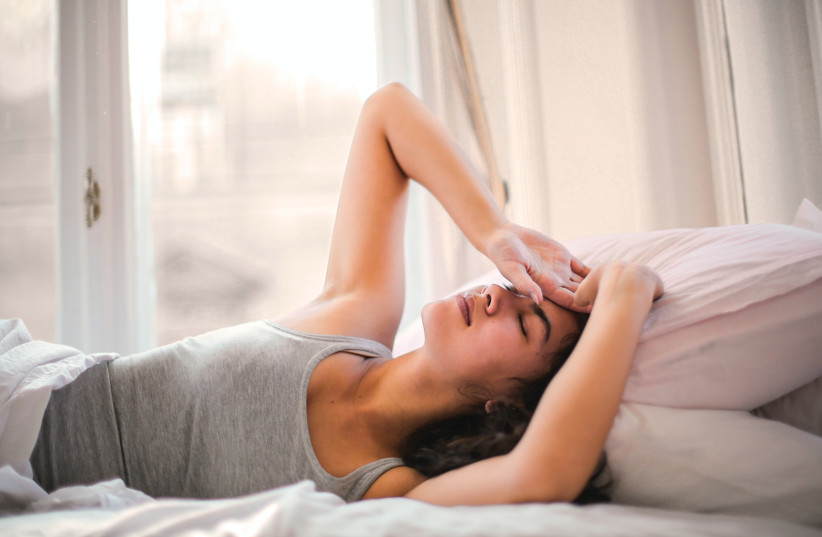If you have trouble sleeping well at night, it may be time to give up some problematic sleeping habits. Dr. Karan Raj, a lecturer at the University of Sunderland in England, shared five things he claims you should avoid doing before bed with his 5.1 million followers on TikTok.
The first is to go to sleep at least two hours after eating a large meal. Dr. Raj explained to his followers.
"It takes 90 minutes for 50% of the stomach to empty into the small intestine. Therefore, the fuller the stomach, the greater the chance of acid reflux, which of course can impair sleep. It is advisable to wait two to three hours after a big meal before going to bed."
One user wrote in response: "I can't sleep on an empty stomach, the hunger keeps me awake! I have to eat something before bed every night."
"It takes 90 minutes for 50% of the stomach to empty into the small intestine. Therefore, the fuller the stomach, the greater the chance of acid reflux, which of course can impair sleep. It is advisable to wait two to three hours after a big meal before going to bed."
Dr. Raj
Don't drink water before bed, or sleep in a warm room
The second is not to drink a lot of water before going to bed. Dr. Raj explained: "When you sleep your body increases the production of the hormone ADH, so it stores water and suppresses your need to urinate. If you drink a lot of water before bed, it can suppress the production of ADH, so you urinate more and you wake up more and it ruins your sleep. Instead of drinking water at night, a more beneficial way to restore fluids is to drink water in the morning."
The third is sleeping in a warm room. Trying to fall asleep during the summer can be an impossible task. The nights can be unbearable and sweaty and the high temperatures can disrupt your sleep balance.
Dr. Raj explained that “our peak body temperature is around 7 p.m. After this point, the body temperature drops and we feel sleepier and there is an increased production of melatonin. Our bodies need to be cooler to sleep faster."
Therefore, quiet, cool, and comfortable bedrooms are synonymous with a good night's sleep.
No alcohol
The fourth is alcohol, also known to disrupt sleep patterns. Dr. Raj explains that alcohol disrupts your rapid eye movement (REM) sleep pattern. The doctor showed his followers on TikTok a graph that tracks alcohol-related sleep.
He explained that drinking alcohol before bed can increase the suppression of REM sleep during the first two sleep cycles, as alcohol is a sedative and can induce deep sleep quickly. As the night progresses, this can create an imbalance between slow-wave sleep and REM sleep, which can result in shorter sleep duration and more sleep disturbances.
Therefore, because alcohol can reduce REM sleep, people who drink frequently before bed often experience insomnia symptoms and feel overly sleepy. To get a quality night's sleep, Dr. Raj suggests stopping consuming alcoholic beverages before bed.
Don't consume caffeine before sleeping
The fifth is caffeine consumption. Most people welcome caffeine consumption as a wake-up stimulant, but what works at the beginning of the day can disrupt your sleep balance in the evening.
According to the doctor, those who have trouble sleeping well at night are advised to give up coffee in the afternoon, as it may disrupt your sleep pattern when the stimulant leaves the body.

The maximum caffeine effect is experienced an hour after drinking it, then it reaches its peak in our blood. After that, depending on the rate of metabolism, it can take up to eight hours to leave the body.
Dr. Raj explains: “The older we are, the longer it takes for caffeine to leave our bodies due to a decrease in metabolism. Adenosine is the molecule that makes you feel sleepy and it binds to the adenosine receptor. Caffeine can also enter the adenosine receptor and block the binding of adenosine to it. Caffeine does not make you more alert, it only makes you less sleepy because it prevents the accumulation of the sleep molecule."
